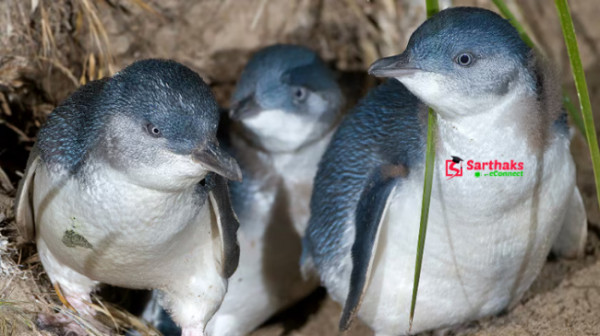
"Urgent Appeal from Scientists: Little Penguins on Granite Island Facing Imminent Extinction"
Human activities are posing a significant threat to little penguins, particularly on Granite Island, where their numbers have drastically declined. A recent study reveals that while bolder penguins don’t compromise on parental care, they do experience increased stress. To protect these vulnerable birds, it is crucial to reduce human interference and implement conservation efforts.
A paper published in the journal Behaviour underscores the growing risks to little penguin habitats due to urban expansion and human presence. Researchers from Flinders University, specializing in animal behavior, used red-light video surveillance to study how "bold" behavior influences penguin parenting strategies in environments impacted by human activity.
Dr. Diane Colombelli-Négrel, leader of the BirdLab at Flinders University, explained that penguins tend to become bolder in the presence of humans. Boldness refers to how quickly a penguin retreats or how close they allow a threat to approach their nest.
While the researchers initially expected bolder penguins to spend less time on parental care, contrary to previous findings in other bird species, the study found that boldness did not impact how often penguins returned to the nest, fed their chicks, or stayed overnight. However, frequent threats and disturbances increased their stress levels.
The research highlights the need for reduced human interactions, especially on vulnerable islands like Granite Island, which sees over 800,000 visitors annually. The penguin population on the island has plummeted from 1,600 adults two decades ago to just 30 today, partly due to human disturbances, a decline in fish numbers, and the presence of predators like fur seals and foxes.
Dr. Colombelli-Négrel urges the public to avoid penguin nests during the summer holidays and to report any potential dangers to their habitat. She emphasized that urban development and human activity are encroaching on natural habitats, intensifying stress on wildlife. The study suggests that constant human interference can negatively affect little penguins and stresses the importance of limiting such disturbances.
The research also calls for further studies on how human disturbance may alter the behavioral traits of penguins, particularly regarding their tolerance to human presence and its long-term effects on breeding success.
Little penguins, the smallest penguin species in the world, are typically found in southern Australia and Tasmania, including Granite Island. The study used red-light torches to minimize the impact on the penguins’ vision during nighttime observations.